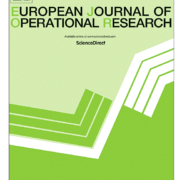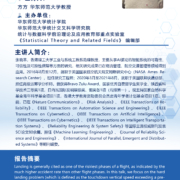Research paper accepted by European Journal of Operational Research
It is common for multiple firms\textemdash such as manufacturers, retailers, and third-party insurers\textemdash to coexist and compete in the aftermarket for durable products. In this paper, we study price competition in a partially concentrated aftermarket where one firm offers multiple extended warranty (EW) contracts while the others offer a single one. The demand for EWs is described by the multinomial logit model. We show that, at equilibrium, such an aftermarket behaves like a combination of monopoly and oligopoly. Building upon this base model, we further investigate sequential pricing games for a durable product and its EWs to accommodate the ancillary nature of after-sales services. We consider two scenarios: one where the manufacturer (as the market leader) sets product and EW prices \emph{simultaneously}, and another where these decisions are made \emph{sequentially}. Our analysis demonstrates that offering EWs incentivizes the manufacturer to lower the product price, thereby expanding the market potential for EWs. Simultaneous product-EW pricing leads to a price concession on EWs compared to sequential pricing, effectively reducing the intensity of competition in the aftermarket. Overall, the competitiveness of an EW hinges on its ability to deliver high value to consumers at low marginal cost to its provider. While our focus is on EWs, the proposed game-theoretical pricing models apply broadly to other ancillary after-sales services.
Dr. Xiaoge Zhang delivered a talk on “Bayesian Deep Learning for Aircraft Hard Landing Safety Assessment” at East China Normal University, China
Landing is generally cited as one of the riskiest phases of a flight, as indicated by the much higher accident rate than other flight phases. In this talk, we focus on the hard landing problem (which is defined as the touchdown vertical speed exceeding a predefined threshold) and build a probabilistic deep learning model to forecast the aircraft’s vertical speed at touchdown using DASHlink data. Previous studies have treated hard landing as a classification problem, in which the vertical speed is represented as a categorical variable based on a predefined threshold. In this talk, we develop a machine learning model to predict the touchdown vertical speed during aircraft landing. Probabilistic forecasting is used to quantify the uncertainty in model prediction to support risk-informed decision-making. A Bayesian neural network approach is leveraged to build the predictive model. The overall methodology consists of five steps. First, a clustering method based on the minimum separation between different airports is developed to identify flights in the dataset that landed at the same airport. Secondly, identifying the touchdown point itself is not straightforward; in this paper, it is determined by comparing the vertical speed distributions derived from different candidate touchdown indicators. Thirdly, a forward and backward filtering (filtfilt) approach is used to smooth the data without introducing the phase lag. Next, a minimal-redundancy-maximal-relevance (mRMR) analysis is used to reduce the dimensionality of input variables. Finally, a Bayesian recurrent neural network is trained to predict the touchdown vertical speed and quantify the uncertainty in the prediction. The model is validated using several flights in the test dataset, and computational results demonstrate the satisfactory performance of the proposed approach.
Welcome Shuaiqi Yuan to join as a postdoctoral research scholar!
We are pleased to welcome Dr. Shuaiqi Yuan, who recently joined our group as a postdoctoral research scholar. Dr. Yuan holds a PhD in Safety and Security Science from Delft University of Technology in the Netherlands.




